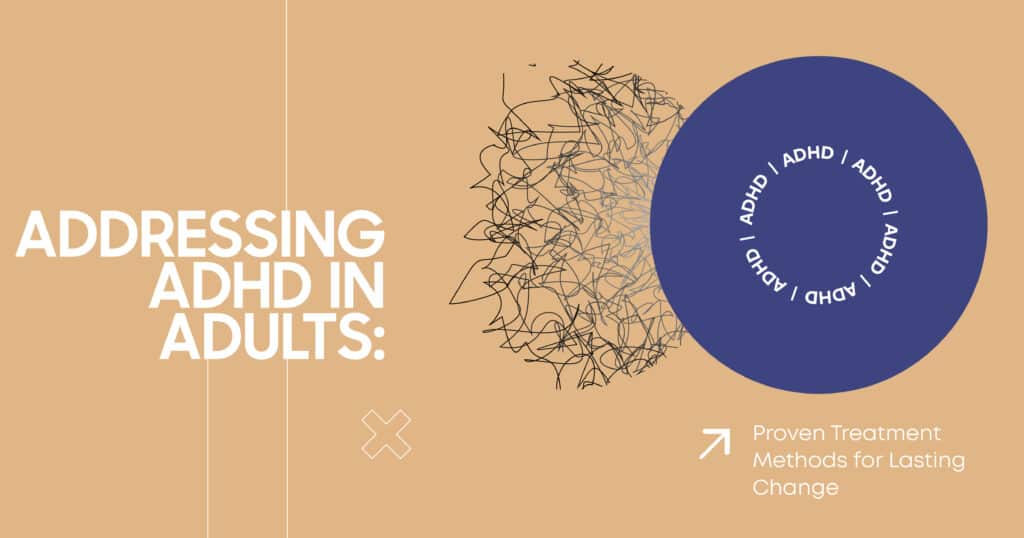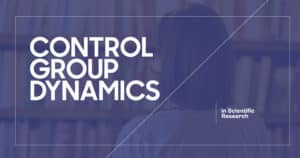ADHD is a disorder everyone knows exists in children, but the truth of the matter is that it continues into adulthood and, in most cases, goes unnoticed or is misdiagnosed. Most adults diagnosed with ADHD suffer from symptoms that become so debilitating that they can interfere with relationships and job performance. But there’s a positive side to adult ADHD treatment options. However, therapeutic interventions, medication options, and life changes improve symptoms and quality of life.
This post will explore ADHD in adults, including its signs and symptoms and how it is diagnosed. We’ll also dive deep into the ADHD treatment options for adults, including therapy for adult ADHD and adult ADHD medication.
Additionally, we’ll cover lifestyle changes and support systems to help with managing ADHD symptoms in adults, and we’ll offer strategies to build a sustainable treatment plan. If you, or even someone close to you-happens to have ADHD in adults, then keep reading further for best practices in changing that last.
Signs and Symptoms of ADHD in Adults
The first step towards diagnosis is to understand the signs and symptoms of ADHD in adults. While symptoms usually present in children through hyperactivity and impulsivity, in adults, they will be more subtle but by no means less impactful. Here are some of the most common signs:
- Difficulty Focusing. Adults with ADHD are not able to concentrate for a long time. During meetings, they can get distracted while in conversation or working on projects. This results in incomplete work, late deadlines, and frustration.
- Disorganization and Forgetfulness. Many adults with ADHD tend to have difficulty staying organized. They lose keys, forget dates, and get lost in the shuffle of daily tasks. Such disorganization affects them at work and home.
- Chronic Procrastination. Adults with ADHD often procrastinate. Lack of focus and inability to prioritize and manage tasks result in delayed projects or avoidance of the projects. This creates a stressful environment and anxiety.
- Impulsivity. Adults with ADHD tend to act impulsively without considering the consequences of their actions. This can be in impulsive purchases, interrupting conversations, or an inability to control emotional responses.
- Restlessness. Even adults experience inner restlessness. People are always “on edge,” or they cannot relax, which leads to chronic fatigue or irritability.
Such symptoms tend to strongly affect the relationships of an adult, either by directly affecting their profession or negatively contributing to the progression of their mental health disorder. However, such often goes undiagnosed, and most victims end up suffering with no information about where and from what because they are suffering.
Diagnosis of Adult ADHD
Diagnosing ADHD in adults is not an easy task since many of its symptoms overlap with conditions like anxiety, depression, or even stress disorders. Most adults who suffer from ADHD never seek help for it, thinking that they just have a part of their personality or that they were never diagnosed with the disorder when they were young.
For diagnosing adult ADHD, healthcare providers most commonly use a combination of the following methods:
| Diagnosis | Description |
| Clinical Interviews | The doctor will ask for a personal and family history in addition to specific questions related to symptoms of ADHD. Past school, family relationships, and work problems will also be asked to clarify the patient’s life history. |
| Questionnaires and Self-Report Tools | The Adult ADHD Self-Report Scale (ASRS) is one of the self-reporting scales conducted to evaluate if the symptoms seen are akin to ADHD symptoms. The healthcare provider can rate the level of the symptoms. |
| Exclusion of Other Conditions | Other possible causes include thyroid conditions, sleep disorders, or a history of substance abuse, among others that may cause similarities with ADHD symptoms. All must be ruled out before confirming a diagnosis. |
| Feedback from Loved Ones | A healthcare provider often asks close friends or family members for insight about the person’s past. This helps confirm some of the patterns that have possibly been overlooked. |
Once diagnosed, a customized treatment plan can now be made. This plan should emphasize the effective management of the adult’s symptoms.
Proven Treatment Options for Adult ADHD
Treatment of adult ADHD is not done the same way for all people. What works for one person may not necessarily work for another, and most often, a mix of therapies and medication usually does the trick. Listed below are some of the most common ADHD treatment options for adults:
1. Adult ADHD Medication
Medications are commonly provided to adults to control the symptoms of ADHD. The most frequently administered medication is from the family of stimulant medication groups. This medication elevates dopamine and norepinephrine levels in the brain. Therefore, the patient can focus better, and the impulsive behavior decreases
Common Medications Include:
- Stimulants. Adderall, Ritalin, Vyvanse
- Non-stimulants. Strattera, Intuniv
While drugs are effective in managing ADHD symptoms for adults, use needs close monitoring since possible side effects range from sleep disturbances to loss of appetite and anxiety. Consultation with the health provider would help make a good decision on what medication to use and dosages.
2. Cognitive Behavioral Therapy for ADHD
It is a specific type of psychotherapy that helps persons with ADHD to change or modify challenging cognitive patterns. For an ADHD CBT case, applied competence remains the core point: an example would be improving time management and organization accompanied by solution-focused problem-solving.
Cognitive Behavioral Therapy for ADHD is a complete game changer for adults with ADHD because it gives them the tools that will be necessary for daily struggles, such as prioritizing and avoiding distractions. Also, it tackles emotional regulation and stress management, so frustrations that would be encountered in dealing with ADHD symptoms will be far better dealt with.
3. Exposure Therapy for ADHD
Although it is not frequently used, some adults with ADHD benefit from Exposure Therapy. This is helpful where specific fears or anxiety are evoked by their symptoms of ADHD. This technique slowly and systematically exposes patients to those triggers to help them diminish avoidance behaviors and anxiety.
4. ADHD Coaching and Organizational Therapy
Coaches offer specific programs that enhance the ability of adult ADHD clients to improve everyday functioning. An ADHD coach meets privately with a person to devise specific strategies to overcome distractions, become more organized, and better manage his or her time. A particular professional environment is typically plagued by a lack of efficient time management and missed deadlines.
Besides coaching, Organizational Therapy strives for systemic environments and rites that keep individuals on track without diversions.
Lifestyle Changes to Manage ADHD Symptoms
Along with professional treatment, some lifestyle changes can make a pretty good difference in managing ADHD symptoms in adults. Here are a few techniques that would help manage their symptoms better:
- Create a Structured Routine
Many adults with ADHD need an established daily routine. Having a predictable pattern for each day of the week can lessen the suffocating feeling of randomness and chaos. Breaking down a task into more minor, quickly followed steps and visual reminders like a calendar or to-do list can be extremely helpful.
- Exercise Regularly
Exercise has been shown to increase brain activity, reduce nervousness, and enhance concentration, which are advantages for anyone with ADHD. The exercise can also include running, swimming, or even yoga, in which the individual will reduce irritation and mental fogginess.
- Improve Sleep Hygiene
Most adults with ADHD have sleep disturbances, which worsen the symptoms. A consistent schedule of sleeping, a gentle routine in bed, and not turning on screens right before bedtime should help improve their sleep quality and alleviate irritability.
- Mindfulness and Meditation
Mindfulness or meditation can aid adults with ADHD to raise their levels of focus and the time spent in the present moment. Examples of deep breathing or even progressive muscle relaxation techniques will reduce anxiety levels and augment emotional regulation.
Support Systems and Resources for Adults with ADHD
The appropriate support for adults with ADHD is very important. Access to support systems can make a massive difference in the well-being of individuals living with the condition. Among these are:
- Support Groups
Having an adult support group with ADHD allows an individual to express and hear advice from other adults who share similar experiences in dealing with ADHD. In most groups, there is a lot of practical guidance on coping with the symptoms and learning how to coexist with ADHD.
- Online Resources
Webs, forums, and social media can be highly helpful but also connect a person with ADHD to many other people with ADHD. Some websites offer coaching webinars that explain how adults can best manage ADHD.
- ADHD Advocacy Organizations
Organizations such as the ADHD Coaches Organisation and the Attention Deficit Disorder Association offer educational content, training, and other material to adults with the disorder. They can also help connect them with professional ADHD coaches and therapists.
Building a Sustainable ADHD Treatment Plan
It usually requires adults to be active with some management plan for ADHD; a well-managed treatment for ADHD often involves the intake of medication, therapy, lifestyle changes, and, most importantly, sound supportive systems. A successful plan for ADHD treatment would then involve working with a medical provider to review the existing treatment plan periodically.
Using a holistic approach by integrating different adult ADHD treatment methods, it is possible to help an individual suffering from ADHD create a workable, practical plan that can thrive.
Moving Forward With ADHD Management
If you or a loved one suffers from ADHD in adults, don’t worry there is relief in many ADHD treatment options for adults. Whether the treatment is adult ADHD medication, Cognitive Behavioral Therapy for ADHD, or ADHD support strategies for adults, the most important thing is to find the combination of treatments and resources right for you to manage the symptoms effectively.
With the approach to treatment tailored for each individual and with appropriate support, an adult with ADHD can transition from losing control of their life back into rebuilding relationships and then accomplishing more than he ever could in school, work, or social realms. That is certainly not something one does overnight, though managing ADHD symptoms in adults does work.
FAQs
- What are the most effective treatments for adult ADHD?
Effective treatments include adult ADHD medication, Cognitive Behavioral Therapy for ADHD (CBT), lifestyle changes, and ADHD coaching. A combination of these methods provides comprehensive symptom management.
- How is adult ADHD diagnosed?
ADHD in adults is diagnosed through clinical interviews, self-report questionnaires, and feedback from family or colleagues, following standard diagnostic criteria.
- Can Cognitive Behavioral Therapy help with adult ADHD?
Yes, Cognitive Behavioral Therapy for ADHD helps adults improve focus, time management, and emotional regulation by changing negative thought patterns and behaviors.
- What role does medication play in managing adult ADHD?
Adult ADHD medication, such as stimulants or non-stimulants, helps reduce symptoms like inattention and impulsivity. Medication is most effective when combined with therapy and lifestyle changes.
- Are there support resources for adults with ADHD?
Yes, support groups, online communities, and organizations like the Attention Deficit Disorder Association (ADDA) offer resources and peer support for adults managing ADHD.







